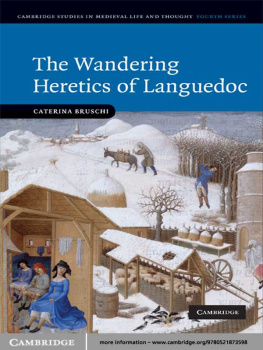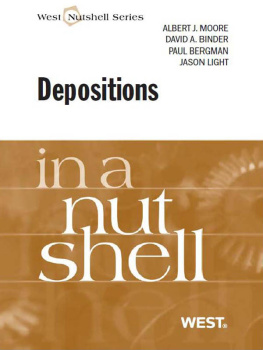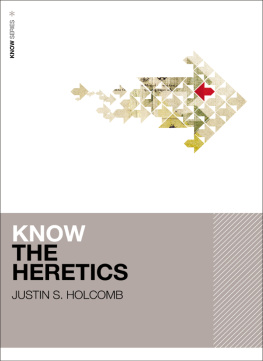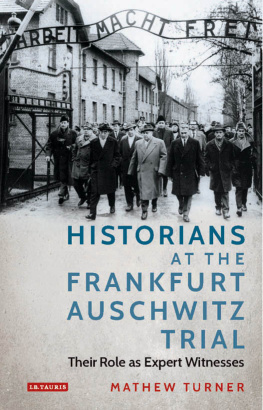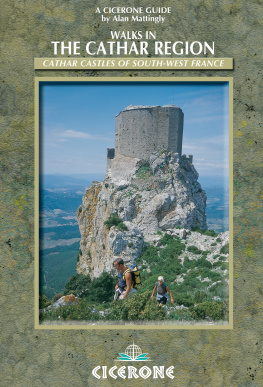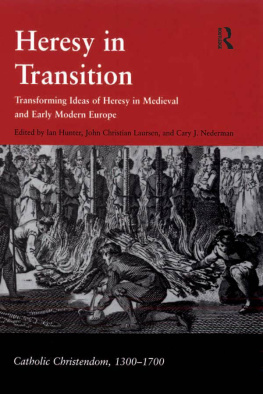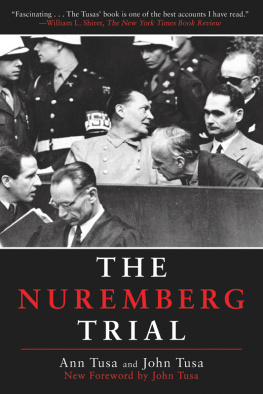Caterina Bruschi - The Wandering Heretics of Languedoc
Here you can read online Caterina Bruschi - The Wandering Heretics of Languedoc full text of the book (entire story) in english for free. Download pdf and epub, get meaning, cover and reviews about this ebook. City: New York, Cambridge, U.K., France--Languedoc, Languedoc (France), year: 2009, publisher: Cambridge University Press, genre: Romance novel. Description of the work, (preface) as well as reviews are available. Best literature library LitArk.com created for fans of good reading and offers a wide selection of genres:
Romance novel
Science fiction
Adventure
Detective
Science
History
Home and family
Prose
Art
Politics
Computer
Non-fiction
Religion
Business
Children
Humor
Choose a favorite category and find really read worthwhile books. Enjoy immersion in the world of imagination, feel the emotions of the characters or learn something new for yourself, make an fascinating discovery.
- Book:The Wandering Heretics of Languedoc
- Author:
- Publisher:Cambridge University Press
- Genre:
- Year:2009
- City:New York, Cambridge, U.K., France--Languedoc, Languedoc (France)
- Rating:3 / 5
- Favourites:Add to favourites
- Your mark:
The Wandering Heretics of Languedoc: summary, description and annotation
We offer to read an annotation, description, summary or preface (depends on what the author of the book "The Wandering Heretics of Languedoc" wrote himself). If you haven't found the necessary information about the book — write in the comments, we will try to find it.
How should historians read sources which record inquisitorial trials in the Middle Ages? How can we understand the fears felt by those on trial? By analysing six volumes of depositions in the trial of Cathar and Waldensian heretics in Languedoc between the late twelfth and the fourteenth century, in this book, Caterina Bruschi challenges old methodologies in the study of dissent. She examines the intrinsic narratological problems related to the sources and, using approaches from the social sciences, analyses the different fears felt by deponents and how those fears affected their actions and decisions. In so doing, she sheds light on itinerancy within the ecclesial structure of non-conformist movements and contextualises the problem of itinerancy as a benchmark for the definition of heresy. Focusing on the lives and attitudes of trial witnesses, this innovative account is a major contribution to our understanding of the nature of religious non-conformity in the Middle Ages.
**
Caterina Bruschi: author's other books
Who wrote The Wandering Heretics of Languedoc? Find out the surname, the name of the author of the book and a list of all author's works by series.

